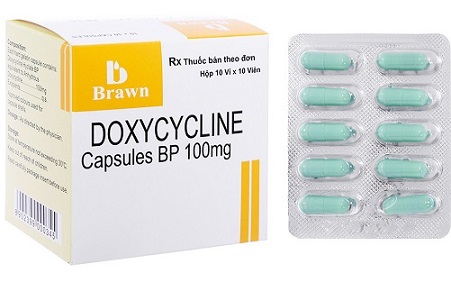A Multicenter Cohort Study Finds That Doxycycline Helps In Reducing Thrombosis and Mortality in Critically Ill Patients With COVID-19
COVID-19 News – Doxycycline - Thrombosis - Mortality - COVID-19 Jun 19, 2023 2 years, 7 months, 3 weeks, 4 days, 4 hours, 19 minutes ago
Doxycycline Can Be Used As An Adjuvant In COVID-19 Treatment Protocols
COVID-19 News: In the battle against COVID-19, researchers continue to explore potential treatments to improve patient outcomes. One such treatment that has shown promise is doxycycline, a commonly used antibiotic. Animal studies have indicated that doxycycline may have antithrombotic effects and reduce mortality, but its role in treating COVID-19 patients has remained largely unexplored. Now, a multicenter cohort study conducted by researchers from King Saud bin Abdulaziz University for Health Sciences, King Abdulaziz University, and Princess Nourah bint Abdulrahman University in Saudi Arabia has shed light on the potential benefits of doxycycline in critically ill patients with COVID-19.

The study, which took place between March 2020 and July 2021, aimed to assess the impact of doxycycline on clinical outcomes in critically ill COVID-19 patients. The study team compared patients who received doxycycline in intensive care units (ICUs) to those who did not (control group). The primary outcome measured was the occurrence of thrombotic events, while secondary outcomes included 30-day and in-hospital mortality rates, length of stay, ventilator-free days, and complications during ICU stay. To ensure comparability between the groups, the researchers used propensity score matching based on specific criteria. They employed logistic, negative binomial, and Cox proportional hazards regression analyses as appropriate.
After the propensity score matching process, the study included a total of 664 patients, with 166 in the doxycycline group and 498 in the control group.
The results showed that the doxycycline group had a lower number of thromboembolic events compared to the control group, although this difference did not reach statistical significance. D-dimer levels, a marker of blood clotting, were lower in the doxycycline group, and the 30-day mortality rate was also significantly lower in this group. Furthermore, patients who received doxycycline had a significantly lower risk of developing bacterial or fungal pneumonia during their ICU stay.
COVID-19 is known to affect multiple organ systems, and its association with a prothrombotic state increases the risk of thromboembolic events and mortality. Therefore, finding effective therapies is crucial in managing the disease. Various drugs, including immune suppressors, convalescent plasma, and neutralizing antibodies, have been repurposed and tested in COVID-19 treatment.
Additionally, bacterial pneumonia is a common complication in COVID-19 patients, leading to the frequent use of antibiotics. However, concerns over the safety of certain antibiotics have prompted the search for alternative options. Doxycycline, with its favorable safety profile, has emerged as a potential candidate.
In addition to its antimicrobial properties, doxycycline has demonstrated antiviral, anti-inflammatory, antioxidant, and tissue-protective effects in previous studies. Past research has shown that doxycycline can prevent lung injury and reduce mortality associated with acute pulmonary embolism. Several studies have also suggested that doxycycline may improve clinical outcomes in patients with COVID-19. For example, a s
tudy conducted in the United States found that doxycycline was associated with early clinical recovery, decreased hospitalization, and reduced mortality in patients with moderate to severe COVID-19.
While some studies have reported conflicting results regarding the benefits of doxycycline in COVID-19 patients, the current multicenter cohort study adds to the growing body of evidence supporting its potential therapeutic effects.
A past
COVID-19 News report covered a study that showed tetracycline, a precursor of doxycycline, could actually help treat COVID-19.
https://www.thailandmedical.news/news/breaking-covid-19-drugs-harvard-study-shows-that-tetracyclines-can-treat-covid-19-acute-respiratory-distress-syndrome-ards-and-also-act-as-a-prophylax
Although the study did not demonstrate a statistically significant reduction in thrombotic events among critically ill patients with COVID-19, there were notable trends suggesting a positive impact. The findings also indicated a significant decrease in 30-day mortality and a lower incidence of bacterial/fungal pneumonia in patients who received doxycycline.
While the current study provides valuable insights, it is important to acknowledge its limitations. As a retrospective observational study, the findings should be interpreted as a hypothesis-generating rather than definitive evidence. Randomized controlled trials are necessary to further evaluate the potential therapeutic effects of doxycycline in COVID-19 patients and validate the current study's results. Additionally, the study only included patients who started doxycycline within 48 hours of ICU admission, which may limit the generalizability of the findings to patients receiving the treatment at later stages of the disease.
In conclusion, this multicenter cohort study adds to the growing body of evidence supporting the potential benefits of doxycycline in critically ill patients with COVID-19. While the reduction in thrombotic events did not reach statistical significance, the study demonstrated a significant decrease in 30-day mortality and a lower incidence of bacterial/fungal pneumonia among patients treated with doxycycline. These findings suggest that doxycycline may have a role in reducing thrombosis and improving survival outcomes in critically ill COVID-19 patients. Further research, particularly randomized controlled trials, is warranted to validate these findings.
The study findings were published in the peer journal: Clinical And Applied Thrombosis/Hemostasis (Sage)
https://journals.sagepub.com/doi/full/10.1177/10760296231177017
For the latest
COVID-19 News, keep on logging to Thailand Medical News.
